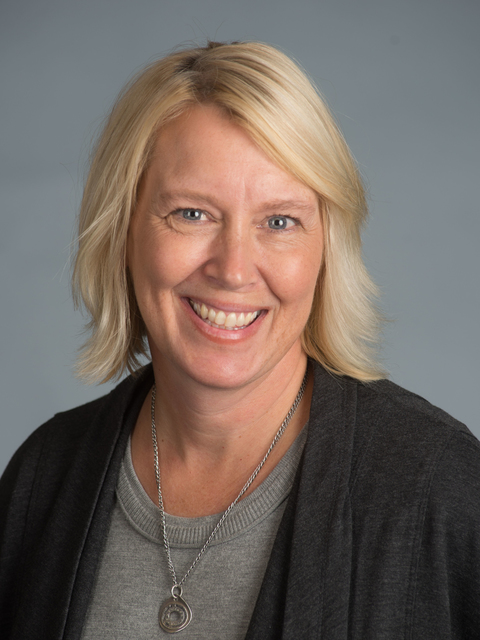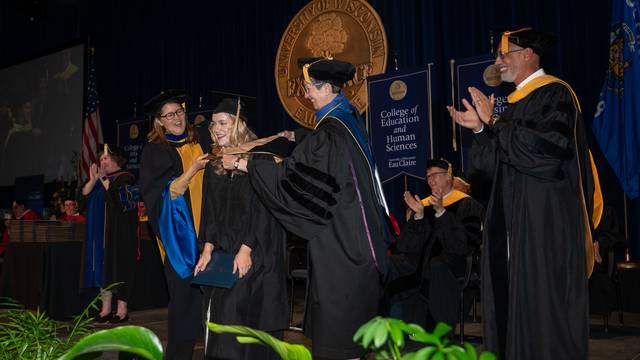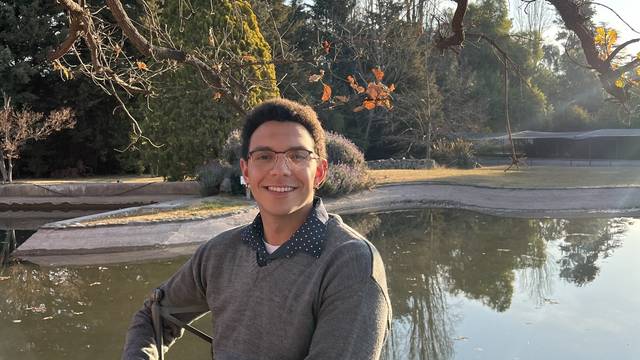Photo caption: The UW System Board of Regents has approved a new master of public health program at UW-Eau Claire. The new graduate program will be 100% online and available beginning in fall 2024.
The University of Wisconsin-Eau Claire will offer a new online master of public health degree program beginning in fall 2024. The UW System Board of Regents approved the graduate program during its June 9 meeting.
The 42-credit online graduate program builds on existing UW-Eau Claire undergraduate programs, including the public health and environmental public health undergraduate majors and the interdisciplinary public health minor. Public health professionals work to improve the places where people live, work and play, efforts that include addressing social determinants of health, the built environment and policy changes to improve the health of the community.
Within two years, UW-Eau Claire expects a total of 50 students to be enrolled in the two-year graduate program, with 25 students graduating each year.
“Wisconsin faces a shortage of trained and skilled public health workers,” says Dr. Mary Hoffman, interim associate vice chancellor for academic affairs and interim dean of graduate studies at UW-Eau Claire. “Since 80% of population health outcomes are attributable to public health factors, a trained public health workforce is essential to the wellbeing of people in our region and state.”
The MPH program is one of six new high-skill degrees soon to be offered at UW-Eau Claire thanks to the $9.4 million Workforce Innovation Grant from the Wisconsin Economic Development Corp. Focused on impact-oriented goals to improve rural health and well-being, the additional programs will provide students with new health-related career options to strengthen our regional workforce.
“We want to address immediate needs in rural communities and develop ways to meet emerging needs in the future,“ says Dr. Mike Carney, assistant chancellor for strategic partnerships and program development. “Over the next three years, our community and state will feel the positive impact of the exciting work done by Blugolds, faculty and partners.”
The new program will have a rural health focus, with a goal to increase the number of skilled public health workers in rural areas in Wisconsin, says Dr. Laura Suppes, associate professor of public health and environmental studies.
“In Wisconsin, about 30% of the population live in rural settings and we know that rural populations tend to have higher disease prevalence and lower health outcomes,” Suppes says. “There is a great need for individuals who are trained and educated at higher levels in those settings to address public health.”
In rural communities, geographic distance and isolation, lower socioeconomic status, high rates of high-risk behaviors, limited access to and use of health care specialists and social services, and limited job opportunities often exacerbate health disparities. Wisconsin's rural population also is aging at a faster rate than urban areas, which can lead to an increased demand for health care services.
A significant number of people from rural areas in Wisconsin travel to Eau Claire for health care, which provides UW-Eau Claire faculty with a “unique perspective about the issues those communities are facing,” says Dr. Briana Rockler, an assistant professor of public health and environmental studies who is helping build UW-Eau Claire’s MPH program.
While the new program’s focus is on increasing the number of skilled public health workers in rural Wisconsin, MPH students can come from any geographic area since all courses are delivered online.
By offering all courses online, students pursuing their MPH at UW-Eau Claire can enroll full-time or take classes as they fit into their work and personal lives.
“The benefit of having an all-online learning degree is that you can be working in your field and be in your workplace and take one or two classes at a time,” Rockler says. “If you go full time for two years, you can finish. Or you can take one class at a time and work your way through it. It’s very beneficial to people already working in public health to have more than one path.”
The MPH program will require an experience component to be completed outside the classroom, such as an internship, thesis or research project. Students already working in the public health field will have the option to pursue a project in their workplace or in their community.
COVID-19 has inspired a growing interest in the public health profession. Employment in public health is expected to increase 30-40% in the next 10 years. Federal funding already is in place to support public health, an acknowledgment that there is a growing need for higher level training and education to address public health issues in the U.S.
At UW-Eau Claire, enrollment in the public health major has been growing since the university began offering it in 2020. In 2022-23, 42 undergraduate students were enrolled in the major.
“Adding the MPH will better prepare students for advanced practice and to serve in leadership positions within public health,” Rockler says. “So not only can they work at a health department, but they can be the director of a health department. There is more earning potential as well as an ability to make an impact on larger sets of the population.”
"People with majors like biology, chemistry, political science, psychology and art all have been interested in public health,” says Suppes, who earned her bachelor’s degree in environmental public health from UW-Eau Claire. “Public Health attracts individuals who are service orientated and want to make a big difference in their community and in people’s health. The MPH is really for anyone who is interested in improving people’s lives.”




